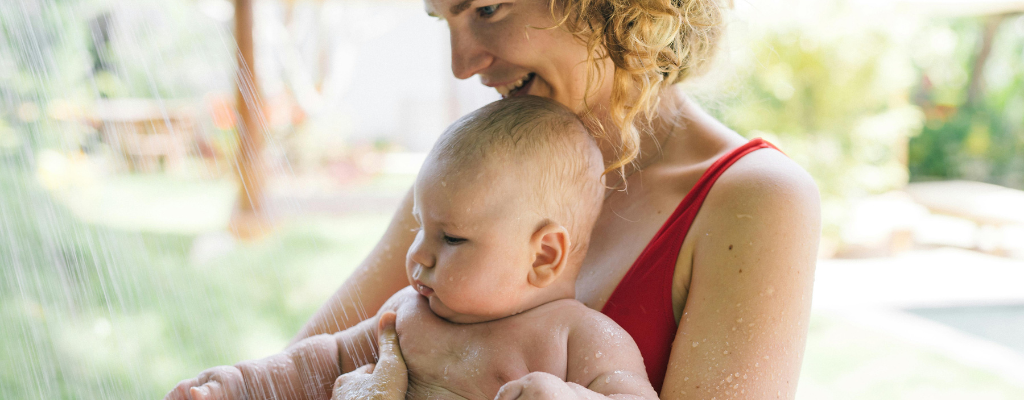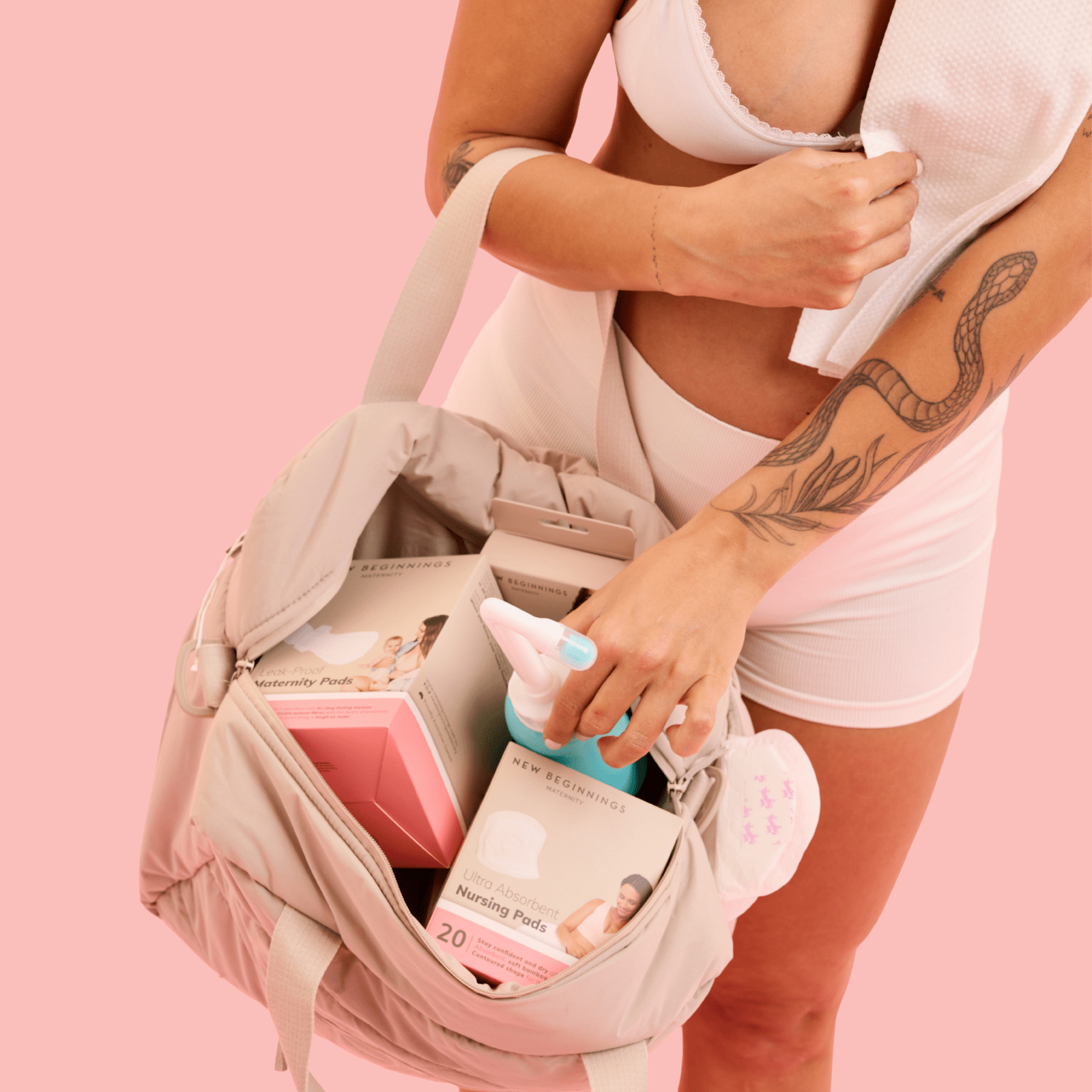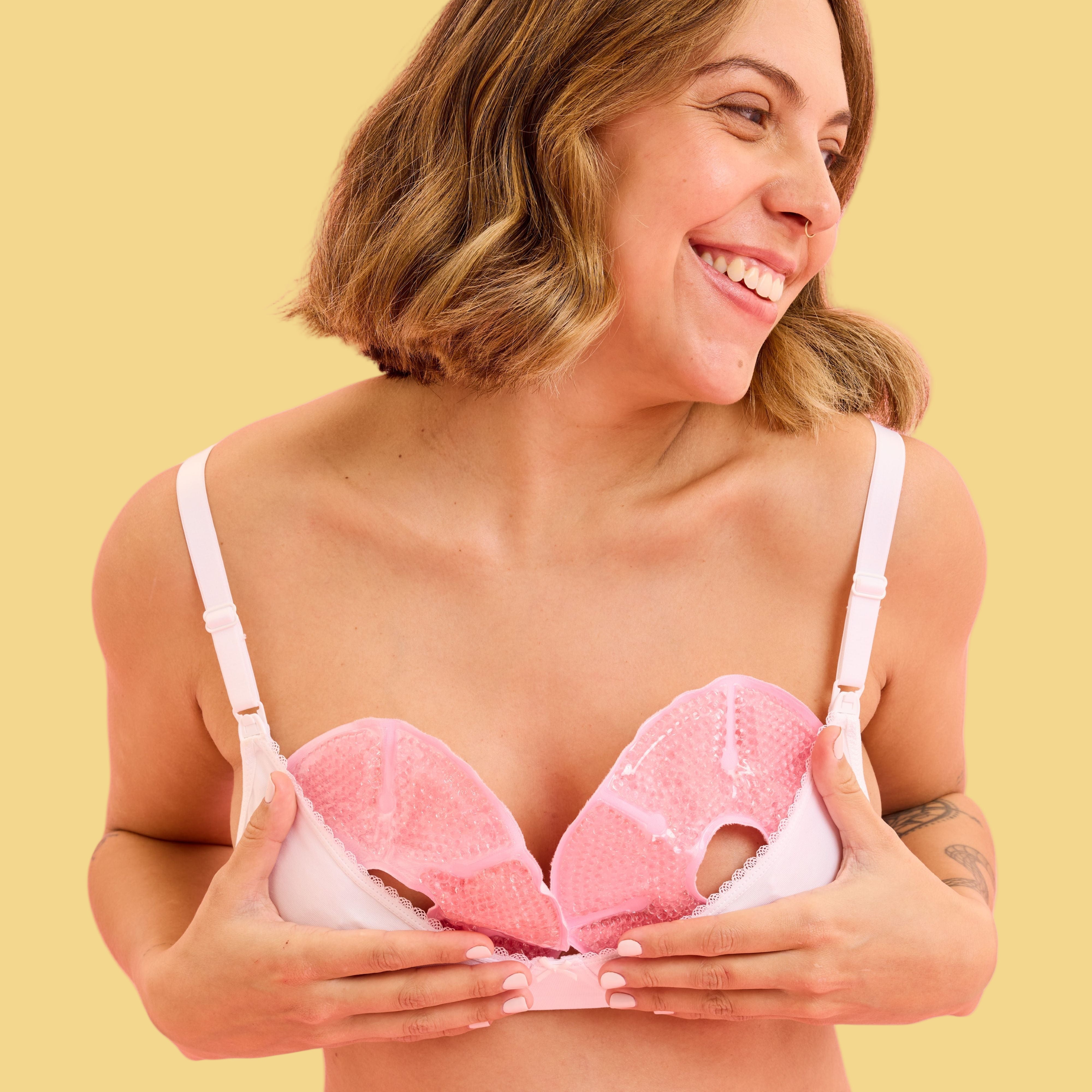Maternity Blog & News | New Beginnings
Disposable vs. Reusable Nursing Pads: A Breakdown of Pros and Cons
Disposable vs. Reusable Nursing Pads: Compare convenience, cost, sustainability, comfort, and versatility of disposable and reusable nursing pads. Find the best option for your breastfeeding journey.
Learn moreWhat are the benefits of Silver Nipple Cups?
Discover the power of Silver Nipple Cups for soothing sore nipples and promoting breastfeeding success. These natural, silver discs offer effective relief and protection, helping you enjoy the breastfeeding journey.
Learn moreWhen Will the Overnight Feeds Get Easier? (and Practical Tips to Help Manage)
Exhausted by late-night baby cries? You're not alone! This whirlwind phase is temporary, but those precious winks of sleep feel oh-so-distant. Don't fret, parents! We've got a toolbox of tips to transform those chaotic nights into calmer stretches (and maybe even some sleep!).
Learn moreTop Postpartum Self-Care Tips & Must-Have Products for New Mums
In this blog, we'll explore the significance of stocking up on your emotional self-love cup, as well as those essential postpartum products.
Learn moreBreast Pumps: Comparing the New Beginnings Breast Pumps
To help you choose the best breast pump for your needs, we've created a comparison table.
Learn moreExercises you can do during pregnancy
Curious if it’s safe to run, lift, or keep exercising during pregnancy? This guide breaks down what’s safe (and what’s not) by trimester—plus easy workouts, expert tips, and how to stay active safely for you and your baby.
Learn moreWhat are Nursing Pads for & how to use them
Discover everything you need to know about nursing pads! Learn why, when, and which type to choose for comfort and leak protection. Read our Nursing Pads 101 guide now.
Learn moreBenefits of Bamboo Maternity Products | New Beginnings
What is Bamboo? Bamboo is an incredibly versatile material used in so many products nowadays. From clothing and linen, to homewares, furniture and, yes, pregnancy products. Sustainable to grow, strong and flexible, and incredibly soft and resilient when woven as a fibre, bamboo has a long list of benefits. That’s why bamboo is the perfect material for pregnant and nursing Mums. Bamboo nursing pads are soft on your skin and super absorbent, while hypoallergenic bamboo baby wipes are kind to theirs. Bamboo is a truly wonderful material which benefits Mums, babies and our environment. Environmental Benefits Reduced farming footprint Bamboo is one of the fastest-growing plants on earth. It uses around 30% of the water needed to grow cotton and can grow almost a metre in a single day. Less chemicals Bamboo is naturally resistant to pests so doesn’t require chemical spraying while it grows. It also requires far less chemical additives in the manufacturing process, unlike polyester or nylon which produce lots of chemical waste. 100% biodegradable You don’t have to feel guilty about your bamboo baby wipes or nursing pads going into landfill. They break down in as little as 6 months, where products made with plastics clog up our environment for 1,000 years. Benefits of using Bamboo products So we know bamboo nursing pads and baby wipes are kind to the environment. But what about you? There’s more good news! Bamboo is incredibly soft to the touch, perfect for sensitive skin and more effective than almost any other material: Naturally antibacterial fibres make bamboo more hygienic Bamboo absorbs up to 40x its own weight Up to 40% more absorbent than the best cotton Hypoallergenic, ideal for sensitive skin Our bamboo nursing pads are designed with an innovative hex weave for even more absorbency, and chemical-free bamboo baby wipes are the perfect addition to your baby bag. Types of Bamboo Baby Products New Beginnings are well and truly on the bamboo bandwagon. We have seen the benefits of this wonderful eco-friendly material and wanted to create pregnancy products that are as good for the environment as they are for new mums. You can now find a range of essential pregnancy hygiene products on our online store: Disposable bamboo nursing pads Ultra-thin bamboo nursing pads Bamboo baby wipes in boxes or soft packs Bamboo maternity pads Disposable bamboo pants Why Choose New Beginnings bamboo products? As the world continues to find new ways to use bamboo, here at New Beginnings we are dedicated to giving new and expecting Mums the kindest, most effective pregnancy products. Our bamboo nursing pads were specially designed to contour for added comfort. They are capable of absorbing up to 40x their own weight and fit seamlessly into clothes. No more wet patches or uncomfortable clothing – only the soft, non-allergenic feeling of bamboo. For baby, our bamboo dry wipes are not only more effective than traditional baby wipes but also much more environmentally friendly. They are 100% biodegradable as well as being incredibly absorbent and soft on delicate skin. Ready to order your bamboo baby products? Call our order hotline on 1300 768 868, or you can send us an email at sales@newbeginnings.com.au for more information. Don’t forget to sign up to our newsletter at the bottom of the page so we can keep you up-to-date with news and product information specially tailored to new Mums.Looking for more information about bamboo baby and nursing products? Visit our mum's guide to Why I Choose Bamboo Dry Wipes.
Learn moreTMI Antenatal Classes!
New Job Application Giving birth to a baby and becoming a parent is like jumping into a new job and very quickly learning how to sink or swim. If you were to apply for a new job you may wish to do some preparation work before the big day and this is how I approached going to antenatal classes. You want to have a look into the company and what the job description is (like learning more about what happens to your body during childbirth and getting some more pointers for breastfeeding etc). You might have a look at the company staff and the building they are located in (like knowing how the maternity staff will help you, options for birthing rooms ie water births & the other facilities at the hospital you will be attending). Then ending your prospective job preparation with weighing up the pros and cons of this new position (like looking at your birth plan, knowing about pain options and what you may find difficult or easy as you become a new mum). Curriculum or KPIs Antenatal classes are kind of like your induction for the role that you are about to perform-child birth and becoming a parent. These information packed classes give you a blow by blow about what happens at every step in the later stages of pregnancy and the ins and outs (pun intended) of the labour process. For some people it’s all a bit too much and for others it’s a great way to learn about it all. Most of us sit somewhere in the middle, like myself with my ignorance in thinking that I have a few nieces, I’ve heard some stories, skimmed through a book and somehow I know the basics! Then you arrive, are handed a class schedule and you read some very foreign words like meconium, mucus plugs, stretch and sweeps and you start thinking…I’m not sure this was the job I applied for! Other Colleagues I found it nice to surround myself with other mums, to be and to watch weekly as they steadily expanded and swelled into an uncomfortable blob much like myself. I enjoyed hearing about why the changes were happening to my body and I found the whole labour explanation quite fascinating (although very graphic! ). My partner and I were able to ask and answer questions amongst a supportive group of peers and open up about what our expectations were pre and post birth. It was nice to hear that similar fears where shared throughout the group and then talk these through in bite size pieces. It was also great to learn some more practical skills like swaddling and changing a nappy. Signing the Contract I would highly recommend going to some sort of antenatal class if you are first time parents. Take the time to invest in learning more about what will happen, ask all the crazy questions that come to mind, why it happens and management plans. It’s also a chance to really touch base with your partner, build a stronger connection as a team and to be around individuals who are dealing with the same issues, in a safe environment. Having a baby and being a parent are both hands on roles and you do learn as you go but if someone was to give you a little bit of advice before you went to that job interview and it made the world or difference, wouldn’t you like to hear it? Author: Elise Bradfield @elise_bradfield
Learn more












